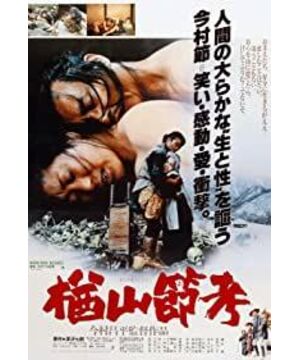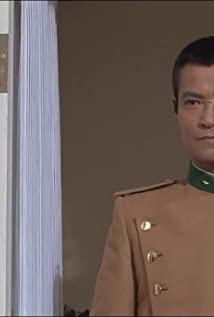The main line of the script is to send my mother into the mountain, and all the storylines revolve around this main line. In the original work, the plot is concise and the main line is obvious.
Realism and re-creation, adding many plots and characters that were not in the original work, such as Tatsupei's second younger brother Risuke, and the ruthless Tatsuira's memory of killing his father, as well as more sex scenes, such as widows going to meet the men in the whole village, the original book There is no second brother and dog, the old widow goes to accompany the second brother, full of primitive lust, can not see the kind side of the villagers, only see ignorance, ignorance, people are like animals, these erotic descriptions completely dilute the main line The sad mood,
while Kinoshita pays more attention to and grasps the description of the kind side of human nature, the whole plot has always been filled with a touch of sadness, Chenping in Kinoshita version is not a hunter, his character is kinder, weaker and indecisive, he can't bear nor want to take his mother I was sent to Narayama, and finally I sent my mother to the mountain when the family population increased due to the helplessness of making a living. I lay in bed and wept in the middle of the journey. During the process of entering the mountain, I kept struggling with my thoughts. I hesitated at the gate of Shenzhu, hugged my mother and cried bitterly. After I put my mother down The loss of looking back shows that Chen Ping is kind and weak. He is unable to resist customs and reality. He was forced to do it because of helplessness, which further highlights the kindness of his mother. With the dark background, the miserable sanweiqin accompaniment, and Chen Ping. The two tears of the second wife also reflect the kindness of the primitive and backward customs.
In the Imamura version of "Narayama Festival Kao", Chenping is more powerful, rational and ruthless. First, his father did not want to send his grandmother into the mountain to kill his father. Later, he asked his wife to accompany his younger brother. Finally, he took the initiative to send his mother into the mountain. As usual, he comforted his mother that he would also go to Narayama in the future, and finally hugging his mother felt very fake. His step-wife had absolutely no feelings for his mother, A Ling, and the whole village was ruthless and ignorant.
Even though Imamura is a master and his work won an award, I still think Kinoshita's version of "Narayama Festival Kao" is more in line with the original and better.
.
View more about The Ballad of Narayama reviews










